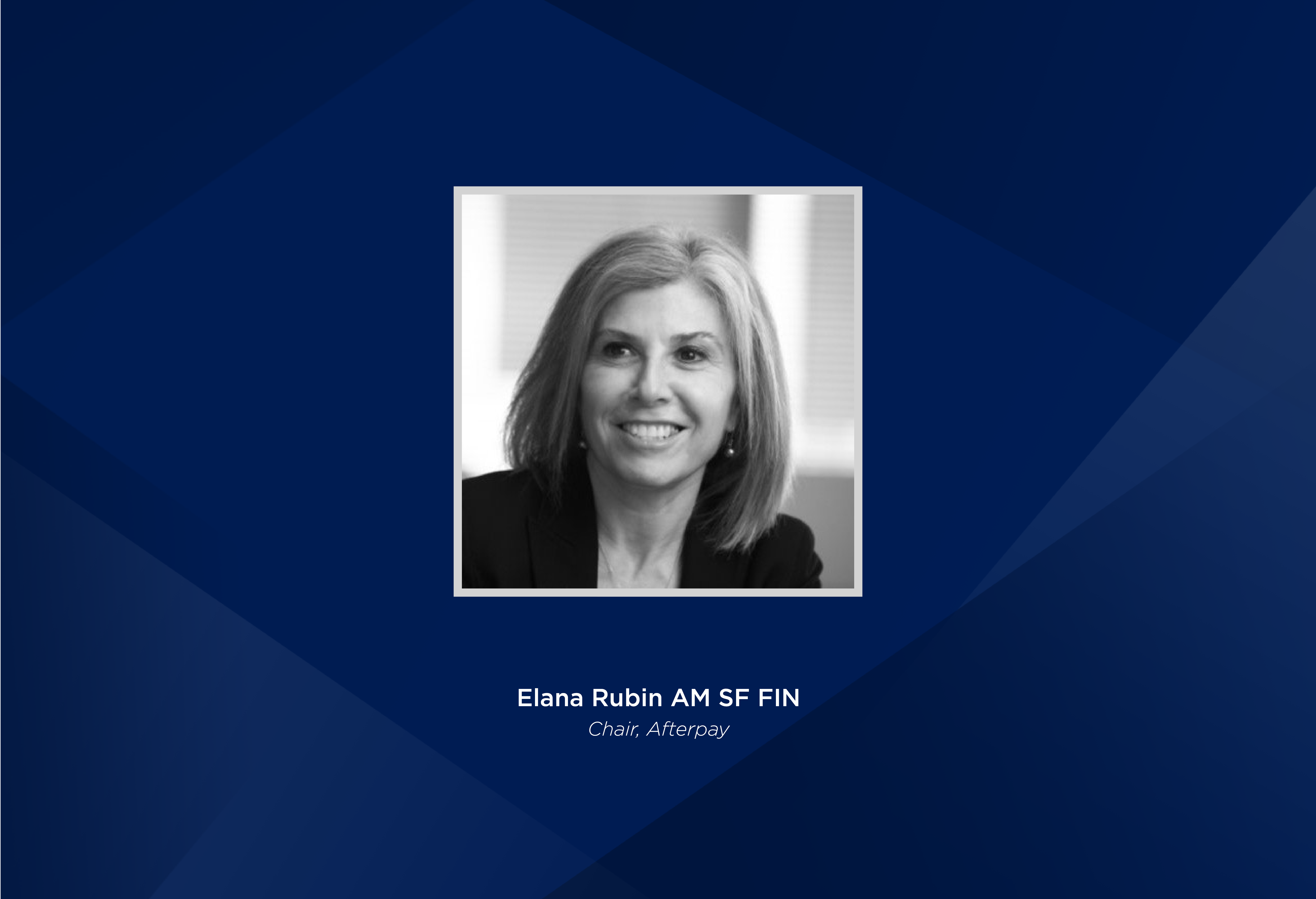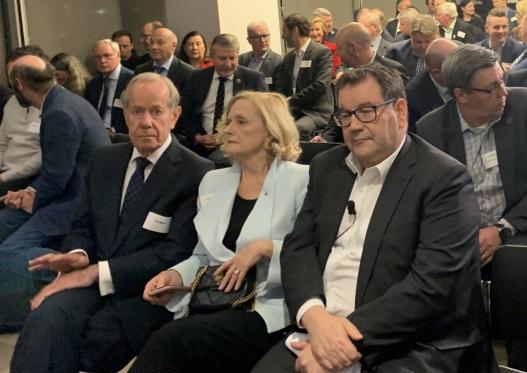“For me, FINSIA represents a community of people committed to professionalism in their endeavours,” said Ms Rubin, whose association dates back to studying applied finance and investment with the Securities Institute of Australia.
“Financial services is incredibly important. It's important to individuals. It's important to the wellbeing of business. It's important to the economy and the community.
“So being part of an organisation that's committed to continuous development, improvement and the higher standards of professionalism, is something that I support.”
The origins for this outlook, according to Ms Rubin, could be credited to Australian Council of Trade Unions secretary Bill Kelty who persuaded her to opt for finance rather than labour law as part of her postgraduate studies in the early 1990s. That was the launchpad for a high profile career that has seen her lead boards such as Australian Super and Afterpay.
“It was Bill's view was that to show the commitment that we had to moving across to a new sector, we should ensure that we were well-trained and across all the key issues,” she said.
“And that set up the concept of making sure that you were committed to continuous education, and improvement, and professionalism.
“Today we get that education through many ways, but being part of a community such as FINSIA is one of the important ways for me.”
That members are advocates for increasing standards of professionalism in the sector is a crucial role FINSIA plays, according to Ms Rubin because “We actually touch people's lives and we affect their financial wellbeing and security.”
Encouraging people to ensure they're up-to-date with community expectations as well as technology is also fundamentally important.
“If you think about the issues that have changed or emerged since I started up until now, it's not only different investment instruments, and digitalisation, and crypto, it's also the standards the community expects from you,” she explains.
“That basis of trust is even more important. It's heightened, and therefore the professionalism by which you interact with advisors and intermediaries is critical.
“Trust is the currency of the future. I think that's absolutely true. Implicit in trust is that you're dealing with people that will act honestly, professionally, transparently, and not be led by conflict of interest. To me, that's professionalism.”
With a resume that includes no less than 19 positions on boards over the past 20 years, Ms Rubin is ideally placed to highlight how they have developed - and is delighted by greater diversity.
“When I look at boards, I like to see people who bring a diversity of experience and a curiosity and an open-mindedness to engage on issues,” she said.
“Diversity is really important. We know that organisations with diversity, both in their governance structures at boards, in management and beyond, have added value. There's lots of research to support that.
“We talk a lot about gender diversity, because gender diversity is really short hand for bringing in different life experiences, different career paths, different perspectives, to make the discussion richer, avoiding group think, which we know is a huge danger to organisations.
“So I think we're making good progress around diversity. Boards are better positioned. They are no longer just made up of ex-CEOs. They're made up of people who have got experiences in a wide range of industries.
“We've got people who are coming in with experience of major culture and change management programs, different types of executive experience, experience from not-for-profits. They have a range of skills and perspectives, which had not been as prevalent before around a board table.
“All of those things add to the discussion and ensure that the board is alert to not only the commercial realities of the business, but also the social license of the business. And we know through experience that social license actually an asset which we need to protect.
“When you have a look at what we've learned through recent events like the Royal Commission, we understand just how important people and culture are to an organisation's wellbeing alongside the ability to deliver on their purpose and mission, and deliver results for shareholders and stakeholders.”








